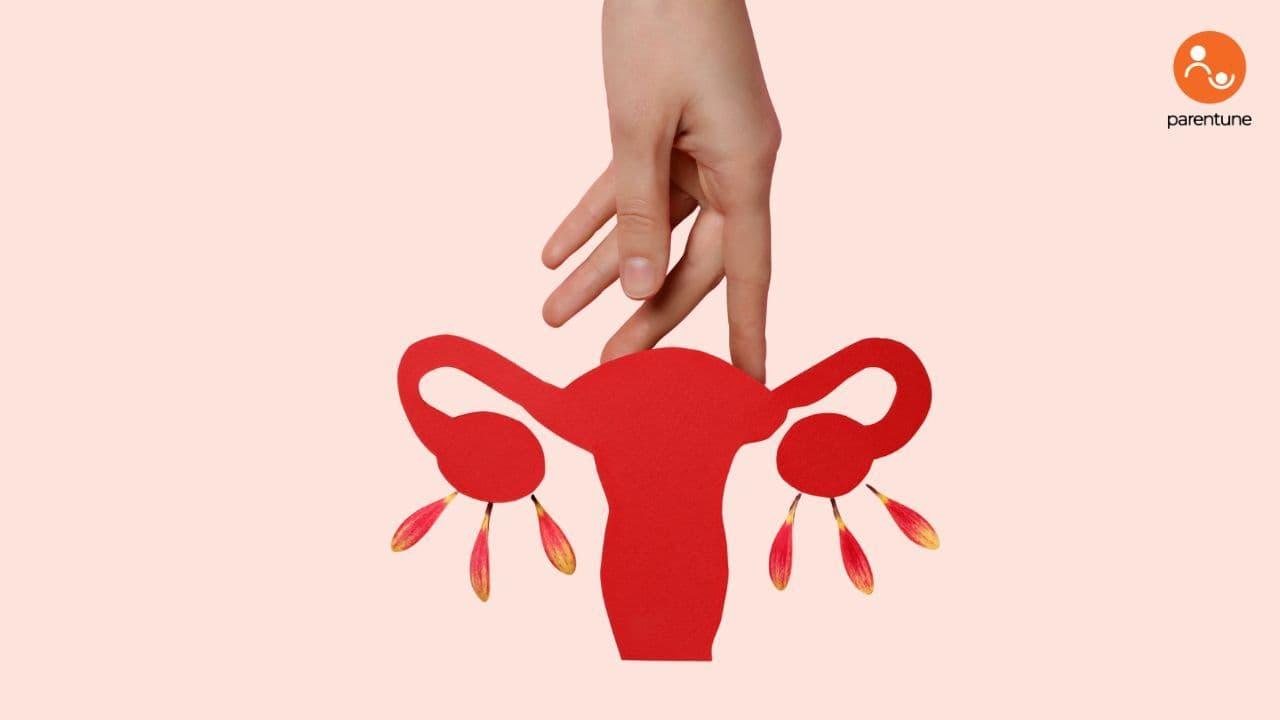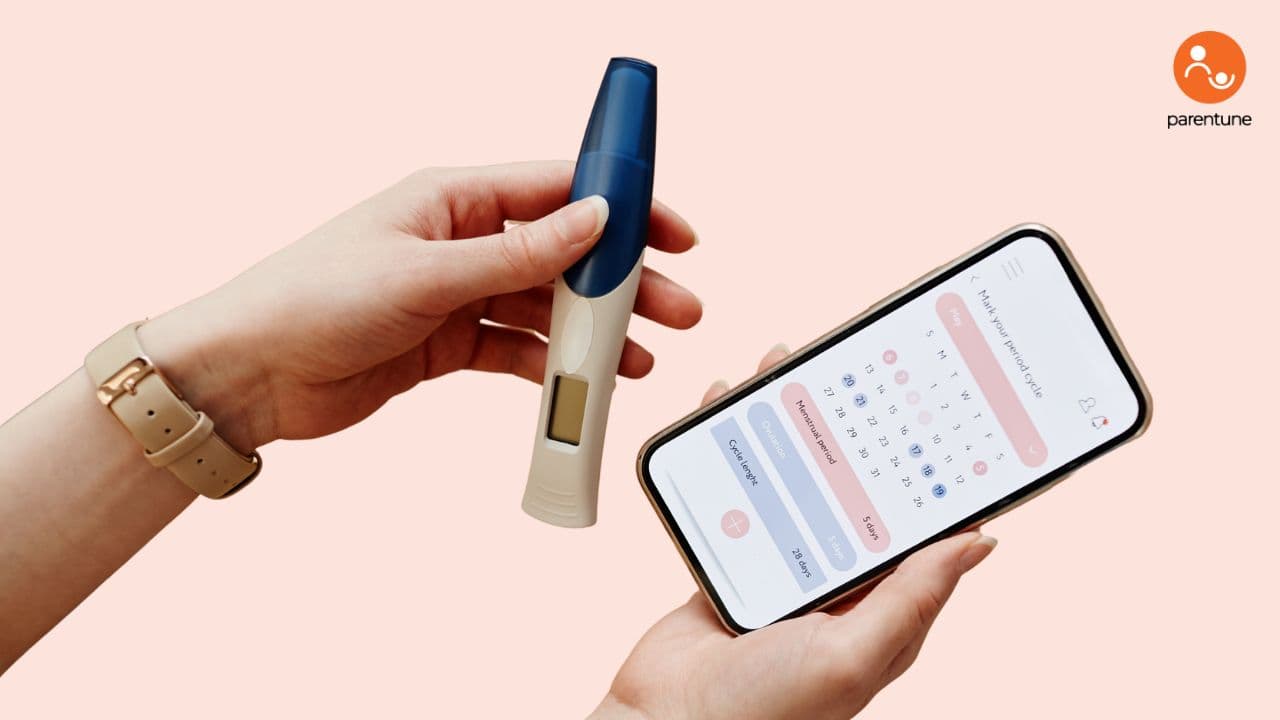tests
Ovulation 101: How To Know When You're Most Fertile

Published: 10/07/25
Updated: 10/07/25
Timing isn’t everything. But when it comes to fertility, it’s close.
Why Is It So Hard To Know When You’re Fertile?
Because your body doesn’t send calendar invites.
It sends clues—subtle, biological nudges that most of us were never taught to recognize.
Not in school. Not in health class. Not even at the gynecologist’s office sometimes.
So here you are—smart, curious, maybe even ready to grow your family—and wondering: How do I actually know when I’m ovulating?
You’re not alone.
In fact, the #1 searched fertility question among women aged 25–40 is some version of this:
“When is my most fertile window?”
Let’s break it down—simply, clearly, and with no fluff.
What Is Ovulation, Really?
Ovulation is the main event in your fertility cycle.
It’s when a mature egg is released from your ovary and travels down the fallopian tube, waiting to meet sperm.
But here’s the catch:
That egg? It’s only viable for about 12 to 24 hours.
That’s it. One day. One chance.
But your fertile window is longer—around 5–6 days. Why?
Because sperm can survive in the female body for up to 5 days.
Which means:
If you have sex in the few days before ovulation, sperm can still be there waiting when the egg drops.
The most fertile day?
Typically the day before ovulation.
How Do You Know You're Ovulating?
Your body leaves clues. You just need to know where to look.
Let’s break down the 5 most reliable signs and tools:
1. Cervical Mucus Becomes Egg-White Like
This one’s nature’s genius.
Right before ovulation, your discharge becomes clear, stretchy, and slippery—like raw egg whites.
That’s a biological welcome mat for sperm.
It helps them swim faster and survive longer.
If you notice this change?
You’re very close to ovulating.
2. A Slight Drop, Then Rise, in Basal Body Temperature (BBT)
Track your temperature every morning before getting out of bed.
Right before ovulation, there’s often a small dip, followed by a noticeable rise (about 0.5°F to 1°F), indicating that ovulation has just happened.
While BBT doesn’t predict ovulation, it helps you confirm it in hindsight—great for tracking patterns over months.
3. Mild Pelvic or Side Pain (Mittelschmerz)
Some women feel a one-sided cramp or twinge during ovulation.
It’s called mittelschmerz (German for “middle pain”).
It’s not dangerous—just a signal from your ovary that it’s doing its thing.
4. LH Surge Detected by Ovulation Predictor Kits (OPKs)
These work like pregnancy tests—but they look for the luteinizing hormone (LH), which spikes 24–36 hours before ovulation.
If you’re looking for data-backed accuracy, OPKs are a solid tool.
5. Increased Sex Drive or Sensory Changes
Some women report feeling more attractive, energetic, or in the mood during ovulation.
Even your skin may glow more.
These are evolutionary nudges—your body’s way of saying “Now’s the time.”
When Exactly Is Your Fertile Window?
Let’s make it visual:
|
Day |
What's Happening |
|
Day 1 |
First day of period |
|
Day 7 |
End of bleeding, estrogen rises |
|
Day 10 |
Fertile window opens |
|
Day 14 |
Ovulation (for a 28-day cycle) |
|
Day 15 |
Fertile window closes soon |
|
Day 28 |
Period starts again |
Important: This timeline is based on a 28-day cycle, which is not universal.
Many women have cycles that range from 21 to 35 days.
That’s why tracking is essential.
Apps like Flo, Clue, or even the free ovulation tracker at Parentune can help you chart your own rhythm.
You may also like to read:
Trying To Conceive? Timing Is Key
Here’s how to optimize your chances:
-
Track for at least 2–3 months to see patterns
-
Have sex every other day during your fertile window
-
Don’t wait for ovulation day only—remember, sperm survives before the egg arrives
-
Avoid lubes that aren’t sperm-friendly—some can actually impair movement
Aphoristic truth: You don’t need to try harder, just smarter.
Track your ovulation using Parentune Ovulation Calculator
Common Mistakes That Disrupt Fertility Awareness
Let’s clear up three persistent myths:
Myth 1: Ovulation Happens Exactly on Day 14
It can, but doesn’t always.
Stress, travel, illness, and hormonal shifts can throw it off.
That’s why real-time tracking matters more than textbook assumptions.
Myth 2: You Can Get Pregnant Any Day
Technically? No.
Your fertile window is short and specific.
Outside it, chances of conception drop dramatically.
Myth 3: Birth Control Apps Are Always Accurate
Cycle-predicting apps without symptom tracking are guesses, not science.
Combine app data with physical cues for better accuracy.

When Should You See A Doctor About Ovulation?
If you're under 35 and have been trying to conceive for 12 months—or over 35 for 6 months—it’s time to consult a fertility specialist.
Also consider visiting a doctor if:
-
Your cycles are irregular or nonexistent
-
You’re experiencing painful periods or mid-cycle bleeding
-
OPKs never show a clear LH surge
Parentune’s verified expert panels regularly answer such questions—and you’re not judged for asking.
It’s a space where fertility struggles aren’t whispered about, but discussed with care and science.
Parentune Insight: Why This Matters Beyond Conception
Understanding ovulation isn’t just for those trying to conceive.
It’s a window into your hormonal health, your stress levels, even your metabolism.
It can help detect PCOS, thyroid imbalances, and more.
When women learn to read their own body’s language, it becomes easier to advocate for care, make informed decisions, and build confidence in their choices—whether they’re planning for pregnancy or just planning for life.
Final Thought: Your Body Isn't A Mystery—It's A System
Fertility is not random.
Ovulation isn’t a guess.
It’s a monthly story your body tells—if you know how to listen.
Let platforms like Parentune help you tune in, track patterns, and connect with other parents and pre-parents who are navigating the same terrain.
Because fertility isn’t just about one moment.
It’s about making sense of a rhythm that’s been playing all along.
And once you hear it, you never unhear it.
Be the first to support
Be the first to share

